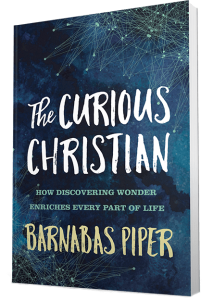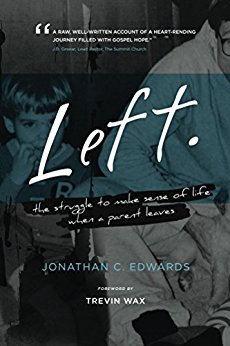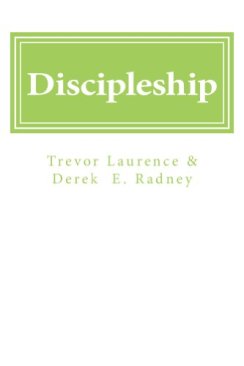The recent publication of The Nashville Statement has provoked a lot of cultural criticism for the traditional evangelical Christian doctrine of sexuality and marriage. In a world where Christian doctrine is often confused, ignored, or even adjusted, such a statement attempts to define a set of beliefs that are consistent with what has been widely accepted as historic Christian teaching.
It has been interesting to read news articles responding to The Nashville Statment. I have not found many that allow for charitable disagreement or meaningful dialogue. Most of them seem to disparage this distinct Christian understanding of sexuality and marriage and those who hold to it. Sadly, this is no surprise. Many within the larger Protestant community have also lodged their criticisms as well.
First, the statement has been criticised because of the timing of its release. I understand the sentiment of this criticism.
Second, the statement has been criticised because of its tone. Written words are what they are. How you hear them, and whether or not you accept them as loving, depends on how you perceive the motivation of those who write them.
Third, one pastor commented: “When we issue statements rather than build relationships we are more like Pharisees and less like Jesus.” However, I do not think statements of belief and relationships are mutually exclusive. Jesus himself demonstrated a deep love for sinners while calling them to turn from their sin. The religious leaders in the New Testament met a different outcome than those who heeded Jesus’ truthful and loving words to “go and sin no more.”
Granted, Christians have not always been charitable or tactful in articulating our beliefs towards non-Christians in a loving way, especially when it comes to controversial matters. Tone and tact aside, we all have beliefs that guide and guard our communities. Tim Keller has a helpful analogy on the role of creeds in a community. (HT Tony Reinke)
“Imagine that one of the board members of the local Gay, Lesbian, and Transgender Community Center announces, ‘I’ve had a religious experience and now I believe homosexuality is a sin.’ As the weeks go by, he persists in making that assertion. Imagine that a board member of the Alliance Against Same-Sex Marriage announces, ‘I discovered that my son is gay and I think he has the right to marry his partner.’ No matter how personally gracious and flexible the members of each group are, the day will come when each group will have to say, ‘You must step off the board because you don’t share a common commitment with us.’ The first of these communities has the reputation for being inclusive and the second for being exclusive, but, in practice, both of them operate in almost the very same way. Each is based on common beliefs that act as boundaries, including some and excluding others. Neither community is being ‘narrow’ — they are just being communities. Any community that did not hold its members accountable for specific beliefs and practices would have no corporate identity and would not really be a community at all.” (The Reason for God (2008), 39–40).
With these points made, I’d like to aim my reflections in a different direction.
We live in a pluralistic society. In our culture, the word pluralism has become much more than a religious mix. Pluralism has become an ideology, a type of political correctness. This kind of pluralism also calls for a specific kind of tolerance.
By tolerance, our culture does not mean, “to respect another’s view point, even if we disagree.” I could agree to that definition, I can respect someone I disagree with. Respect is the basis for honest dialogue even in the midst of disagreement.
Our culture seems to define tolerance as the “acceptance of different views.” The shift from “respect” to “acceptance” is notable. It communicates that you and I cannot bear to contradict one another.
Admittedly, The Nashville Statement draws a line in the sand, something Jesus himself often did on matters of Christian ethics. One of the things we must face is the reality that no follower of Christ can possibly embrace the full acceptance of different views, especially if they believe one is true and the other is false. This is true regardless of how you feel about the intent or tone of the statement. When it comes to matters of faith, we can discuss and disagree. It is ok. This is the hallmark of religious freedom.
Enter Sam Allberry. I do not know Sam personally, but he is known to many people because of his voice on the issue at hand.
In a society where much hatred and confusion is aroused by clear delineations on sexuality and marriage, Sam needs to be heard. Allberry is a Christian who experiences same sex attraction but chooses not give himself to such relationships because of his personal faith. He is single. Moreover, he affirms and defends the biblical view of sexuality and marriage. He also signed this controversial Nashville Statment.
When it comes to Christians struggling with same sex attraction and yet remain faithful to Scripture’s teaching, I would imagine that he is not unique. He is not alone. However, God has allowed Allberry a public platform to speak to these issues.
I am grateful for Sam’s courageous conviction, and how he has modeled his humble but confident faith, even in the midst of struggle. I think we as the Church need to learn from Sam. We need to listen. We need to be aware of others around us who may find themselves in a similar position.
All of us would affirm that the gospel is good news for all people, regardless of how our human brokenness manifests itself in our individual lives.
One of the reasons that The Nashville Statment is controversial is because it outlines what many evangelical Christians believe the Bible teaches regarding sexuality and marriage. It is controversial because it calls for repentance and faith.
Repentance is controversial because it presupposes that there is something wrong with us. Faith is controversial because it presupposes that we need to be saved from our sinfulness.
All of us have struggles related to sin. Sam struggles with same-sex attraction and other things, I am sure. I may not struggle with same sex attraction, but I struggle with 10,000 other things. Therefore, Sam and I are essentially the same. Broken sinners at the foot of the cross. The ground is level at the foot of the cross.
For this reason, Sam and I are also beloved children of God, covered by God’s grace through repentance and faith in Christ alone. This is the good news of the gospel.
The both of us desire to pursue holiness. Both of us war with our own sinfulness by the power of God’s indwelling Spirit, with the weapon of the Word, and in the midst of an army of fellow saints.
By the grace of God, we are what we are, simultaneously sinners and saints. We know dear Christian brothers and sisters, that we are all great sinners. We also know that Christ is a great savior.
If you are wrestling with this issue as one who struggles with same sex attraction, or as one who wants to better understand this issue, I encourage you to read Sam’s book “Is God Anti-Gay?”.









